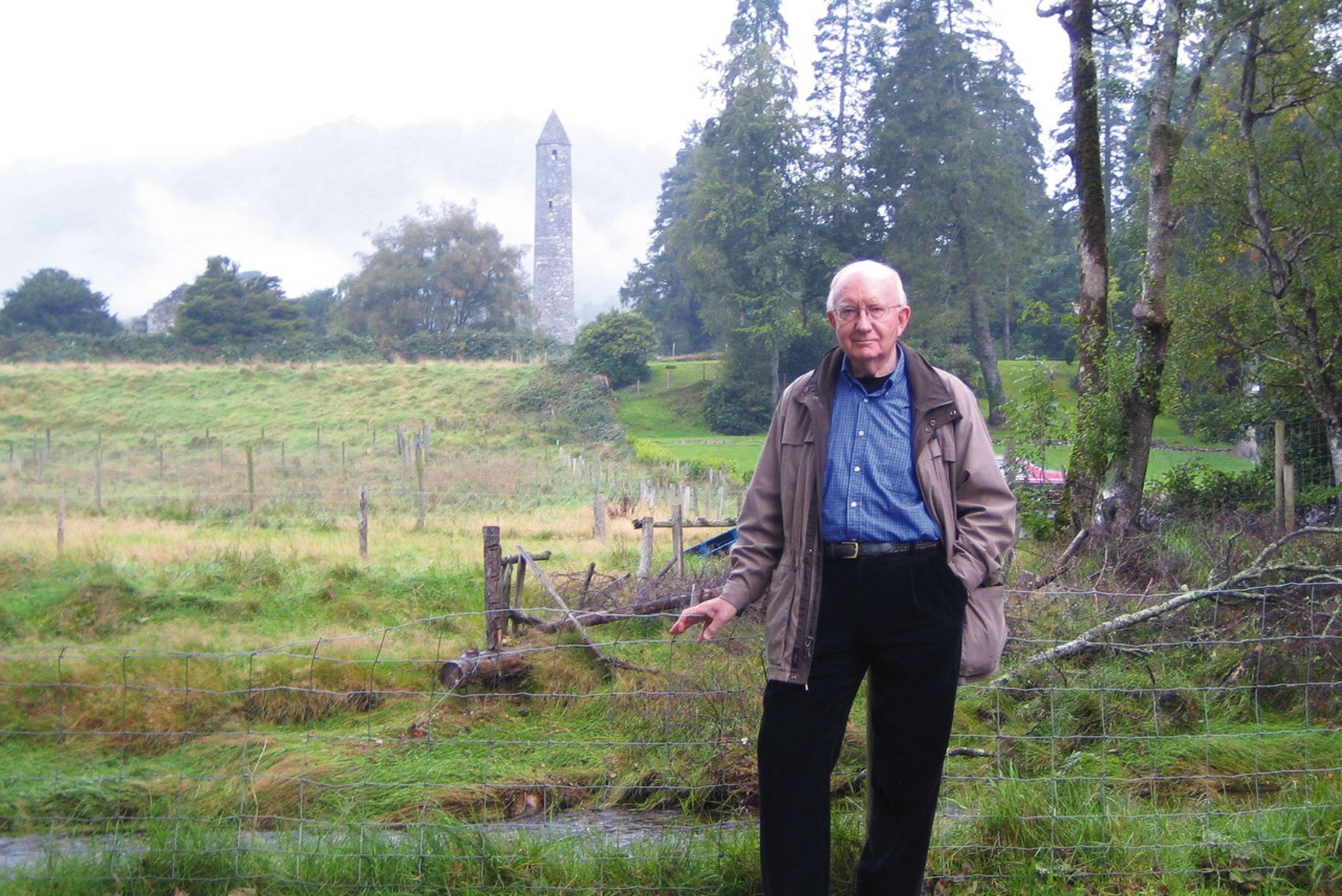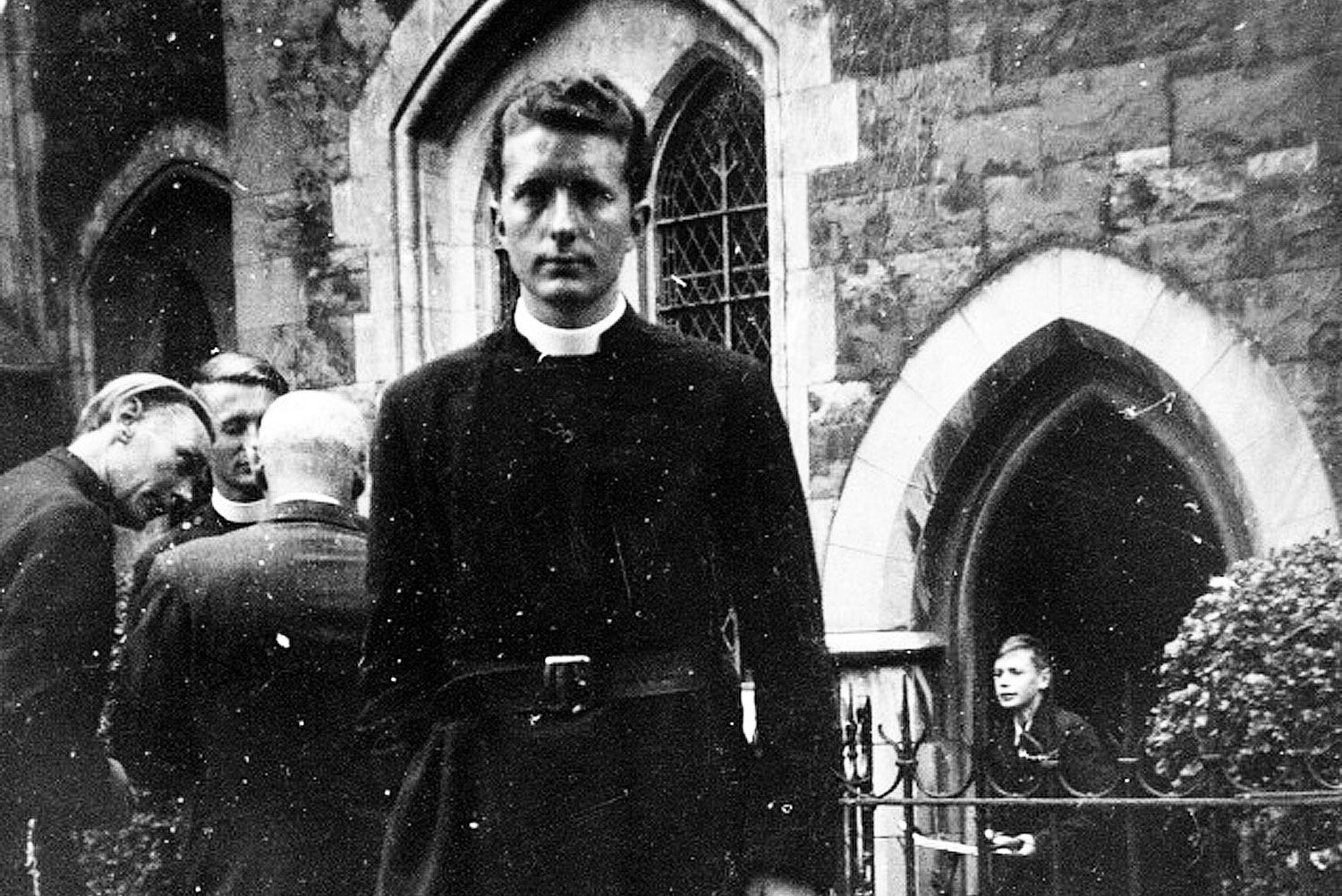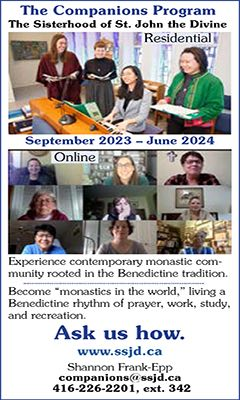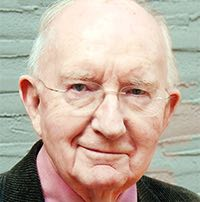Herb O’Driscoll’s newest book of memoirs, I Will Arise and Go Now: Reflections on the Meaning of Places and People, was released Feb.17 by Morehouse Publishing.
September 9th, 1941 saw me boarding the 6.15 pm train for Midleton College, all of 15 miles distant; saying farewell to my parents, being welcomed by the housemaster at the entrance to the platform and my name ticked off on his list. Many years later I relived this wrenching experience as I sat in a theatre with grandchildren and watched Harry Potter and Ron and Hermione getting the train for Hogwarts Academy of Magic!
One abiding moment of memory: summer term 1943. I am in fifth form. Our classroom is near one of the school entrances. For some unknown reason, the school donkey, used by the grounds staff of the school to haul a cart hither and yon, decides to enter the hallway through an outside door, then to amble along the corridor to the partly open door of our classroom. With our Latin master, Mr. Cox, we are busy translating a chapter of Julius Caesar’s Gallic Wars. Suddenly the door creaks open and the donkey puts his head in. There is of course instant and delighted pandemonium. This is a cast iron excuse to interrupt Julius Caesar – or anyone else – to celebrate a moment’s freedom from study.
With great commotion, the donkey is turned around and led outside. Class settles down again. Books are reopened, all eyes on Mr. Cox. But he does not immediately return to the 1st century BCE. Instead he looks at all of us reflectively and then, with great satisfaction, quietly says a verse of scripture that earns him a line or two in the history of the school. Indicating the door by which the donkey entered, Mr. Cox quotes his chosen scripture, presenting it with a touch of sarcasm. “You boys will of course be aware of the text in St. John’s gospel, chapter one, verse six.” With exaggerated patience he waits for one of us to identify the text. None does or can. Very deliberately, Mr. Cox continues: “Chapter one, verse six of St. John’s Gospel says the following. It states that our Lord came unto his own and his own received him not. I cannot help thinking that this text could be applied to the visitation we have just received.” For a moment there was silence, then Mr. Cox gave a wide grin and the class exploded with clapping.
There is a sequel to this wonderful moment, one that is a tribute to the fine mind of Richard Cox. A few days later he was with us again for Latin class. This time, before calling us to open our copies of Caesar’s Gallic War, he said he wanted us to listen to something, something he had remembered later in the evening after the entry and exit of the school donkey. He then opened his copy of the New Testament and read.
We listened as Mr. Cox read the short passage of Jesus choosing a donkey, the humblest of beasts, to ride into Jerusalem. When he had finished he paused and said, “I want you now to take out your English poetry books and look in the index for a poem by G.K. Chesterton. The title of the poem is The Donkey. Desktops were obediently opened and closed in our usual noisy fashion. Mr. Cox waited for silence and then read:
When fishes flew and forests walked
And figs grew upon thorn,
Some moment when the moon was blood
Then surely I was born.
With monstrous head and sickening cry,
And ears like errant wings;
The devil’s walking parody
On all four footed things.
The tattered outlaw of the earth,
Of ancient crooked will;
Starve, scourge, deride me, I am dumb,
I keep my secret still.
Fools, for I also had my hour,
One far fierce hour and sweet.
There was a shout about my ears,
And palms before my feet.
I remember Richard Cox very clearly, perhaps because I liked him and I found Latin interesting. In appearance he was a slight figure, physically stooped and slightly lame. He could be the butt of schoolboy jokes, sometimes cruel and hurtful, but when he read aloud he did so with a quiet and, at least for me, memorable authority. I also remember noticing as he read, that he did not have to look at the page. He looked at us as he gave us Chesterton’s famous and deeply moving lines.
There was silence when the reading ended. Mr. Cox made no further comment. He returned the book and said, “Now, I think we were beginning chapter three of Caesar’s Gallic War.” But at least some of us knew that Caesar and his wars were not the real lesson of that day.





